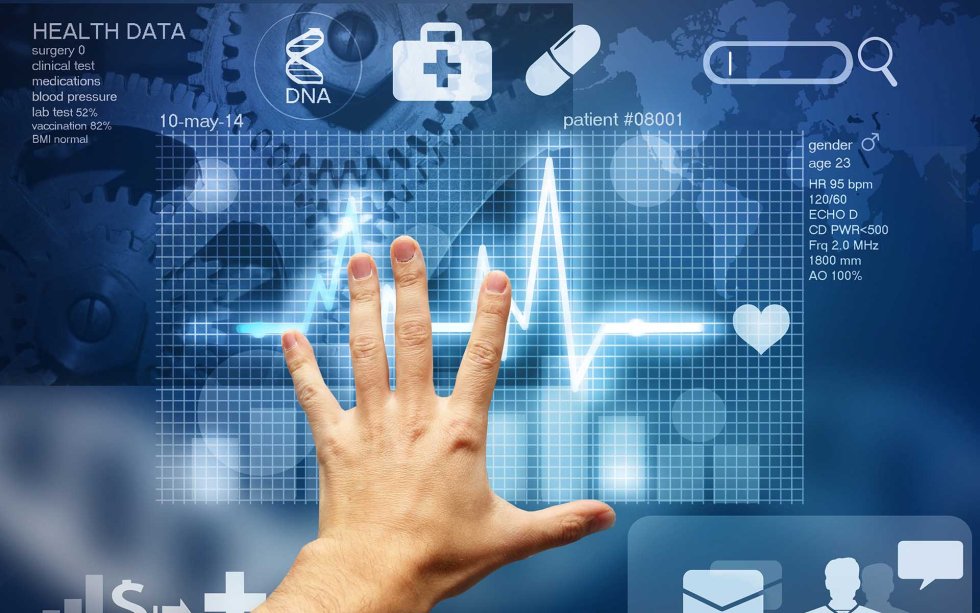In 2010, Regina Holliday brought her husband, suffering from kidney cancer, to a hospital and begged the doctors and nurses for her husband’s medical records. Five days later, she still hadn’t received them. On the sixth day, the man was transferred to another hospital, and the doctors couldn’t give him pain medications because they didn’t know what drugs he already had in his body. For a seemingly endless six hours, the man suffered from severe pain. The woman had to return to the first hospital to pry the records out of them to allow her husband to receive proper treatment.
Another case was described in the bulletin of the ECRI Institute PSO in May 2015:
The doctor ordered four units of fresh frozen plasma while the patient was in the ER. After the patient was admitted, the blood bank informed us that the order did not transfer because the number of units must be specified in multiple sections in the record. This resulted in a delay starting the infusion. The patient coded and died by the time the order was completed.
Improper Healthcare Data Costs Lives
Medical errors in hospitals are the third leading cause of death in the U.S. Almost 98,000 people lose their lives in this way annually. Many of these mistakes are attributed to improper information or lack of information doctors rely on. Without information from the patient’s previous records, the doctors may have no time for additional tests and make wrong decisions based on the limited information they have.
One of the key problems in navigating through healthcare information is improper interoperability where different computers and, in some cases, paper information systems do not talk to each due to different technical or operational issues. 60% of nurses surveyed by the non-partisan Gary and Mary West Health Institute agreed interoperability could significantly decrease medical errors.
Efforts to Improve Healthcare Data Interoperability
Colossal efforts have been made by the healthcare community to develop proper data exchange standards. The process is led by the Integrating Healthcare Enterprise (IHE) organization. While these open standards have existed for more than a decade, the lack of a unifying technological framework and egoistic corporate interests hinder the implementation of these vital standards.
The Grapevine World solution has come in the nick of time to remove all roadblocks in the way of fast, reliable, and seamless exchange of healthcare data with others based on informed consent. Grapevine World has taken the existing IHE methodology and Ethereum blockchain solutions and has blended them to create a unique, open, and decentralized platform independent of corporations or another single vendor. By introducing a decentralized, standardized exchange of healthcare data, Grapevine World has united all stakeholders of the ecosystem for a sustainable, interoperable health data exchange.
At the Crossroad of Two Great Technologies
IHE has proved its effectiveness in several worldwide initiatives. Beyond underpinning national health infrastructures, IHE profiles have formed the basis for three major US and European initiatives to facilitate health data exchange.
The IHE vision is:”Enable seamless and secure access to health information that is usable whenever and wherever needed.” Systems developed in accordance with the IHE flawlessly transmit information from one to another, use common standards and enable care providers to use information in the most efficient ways.
Blockchain technology has added value to Grapevine World by introducing smart contracts that are entered into solely by the participants with no need for third party involvement. By design, smart contracts guarantee that the transfer of data ownership is verifiable and ensure that the user obtains exactly the data requested in an understandable form.
All blockchain technology transactions are automatic, and the whole health history is stored in full. Grapevine healthcare technology is already recommended by the EU and approved by the Austrian Financial Market Authority.
Grapevine Tokens to Seal the Technology Solution
To facilitate smooth transactions within the Grapevine World ecosystem and assure access, Grapevine tokens have been introduced. Individuals and institutions do not receive access to Grapevine World without these tokens. As representations of value, they allow people to utilize their health information.
Grapevine tokens serve as a medium of exchange for health services, products, and information, as well as verifying all transactions. Every transaction taking place is linked to an Ethereum Distributed App (DApp), ensuring every single transaction is processed and permanently logged.
Grapevine tokens control the data flow and make sure all participants in the data exchange are reimbursed. Smart contracts embedded in the tokens introduce many attractive payment options like making payments in installations, escrow or conditionally based on the quality of data or services received.
Grapevine World to Disrupt Healthcare Data Industry
In addition to solving the interoperability problem, Grapevine World will give its participants an opportunity to gain control over their healthcare data and have access to a wider and borderless choice of healthcare providers.
By enabling convenient, reliable and confidential access to healthcare data, Grapevine World is introducing a new world where healthcare providers have quick access to information to literally save their patients lives.
Grapevine World has already launched live pilots with some of the healthcare and tech giants and its client dashboard is securely hosted on Microsoft Azure.
Grapevine World is heading towards an ICO which starts on June 20th and will run until July 20th, 2018. Their whitelist is also now open, so you still have the chance to sign up. Another bit of exciting news is that Cobinhood exchange has confirmed that it will list Grapevine World once their ICO is finished!
Learn more about Grapevine World on their official website.
What are your thoughts on putting patient medical data on the blockchain? Let us know in the comments below.
Images courtesy of Grapevine World
